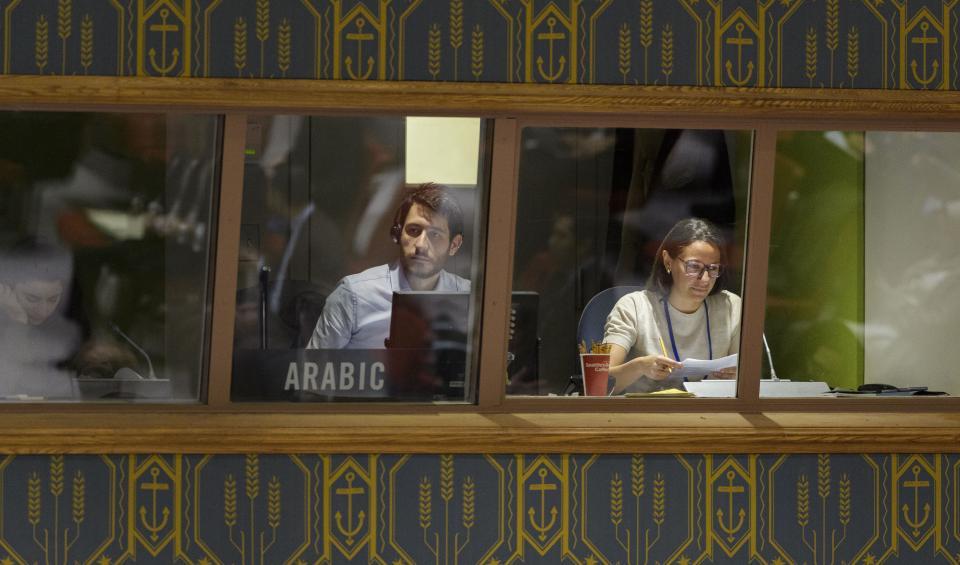Interpretation

Interpreting at the United Nations
At meetings and conferences of Charter or mandated bodies, participants may speak in any of the six official languages. Their words are simultaneously rendered into the other five languages by conference interpreters, who interpret into their main language, with the exception of Arabic and Chinese interpreters, who work both from and into their main language.
Skills needed
A wide-ranging knowledge of world affairs, subjects (including technical terms) and United Nations processes is essential for all interpreters. They must, in particular, master the specific vocabulary (or jargon) of the Organization. For the purpose of the competitive examinations for language positions, prior knowledge of specific terminology and style specific to the United Nations is helpful but not required. Because the United Nations has only six official languages, many delegates must speak in a language other than their main language, and this poses a special challenge. Interpreters must be able to comprehend every imaginable accent, in addition to coping with issues of speed and style. Moreover, interpreters must find proper cultural equivalents and take cultural context into account. A thorough knowledge of both language and culture is thus required.
Schedule and assignments
Normally, interpreters are assigned to interpret seven or eight 3-hour meetings per week. They work in teams of two or three and usually alternate with each other every 20-30 minutes. On occasion, interpreters are expected to travel to service meetings held away from their duty station.

